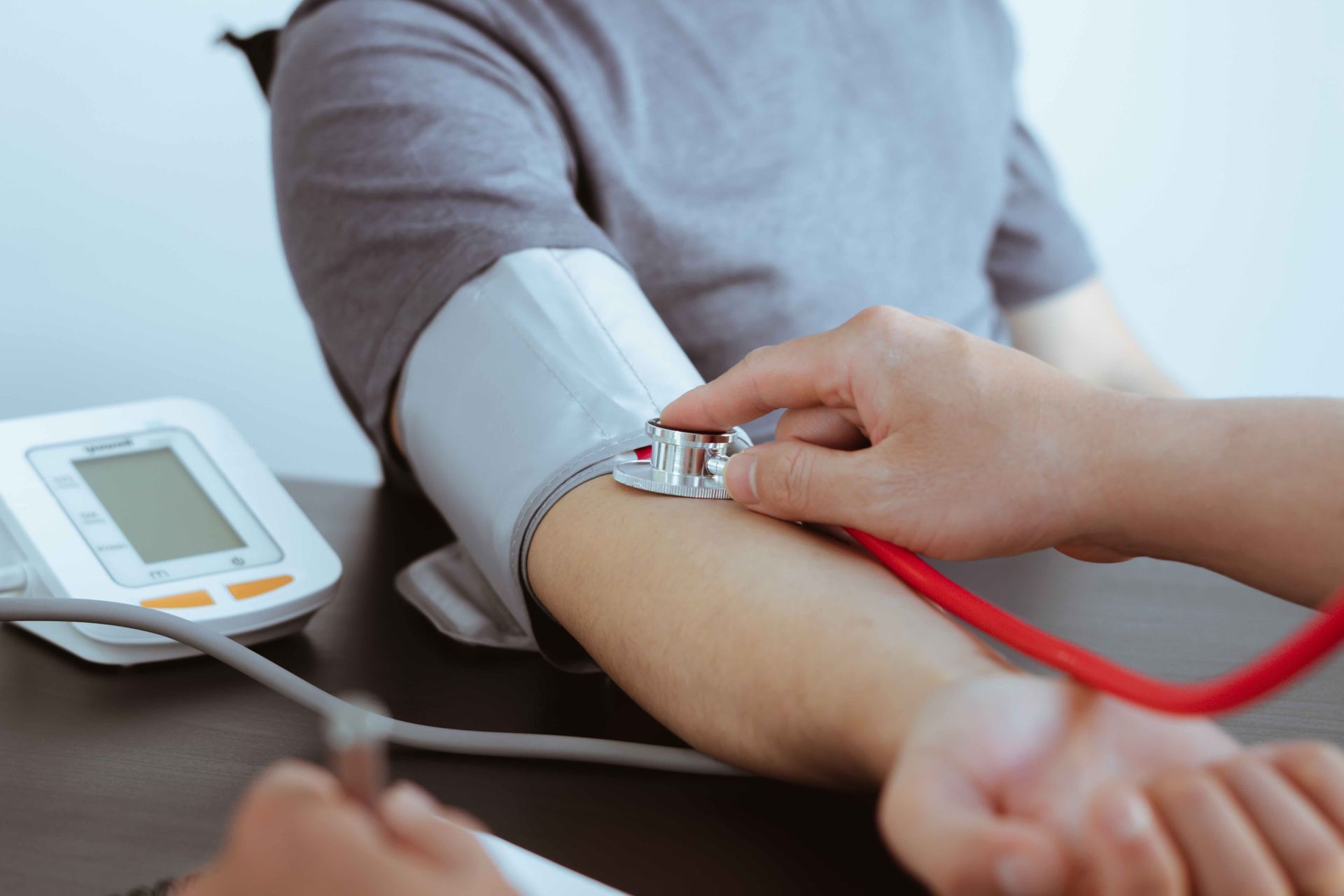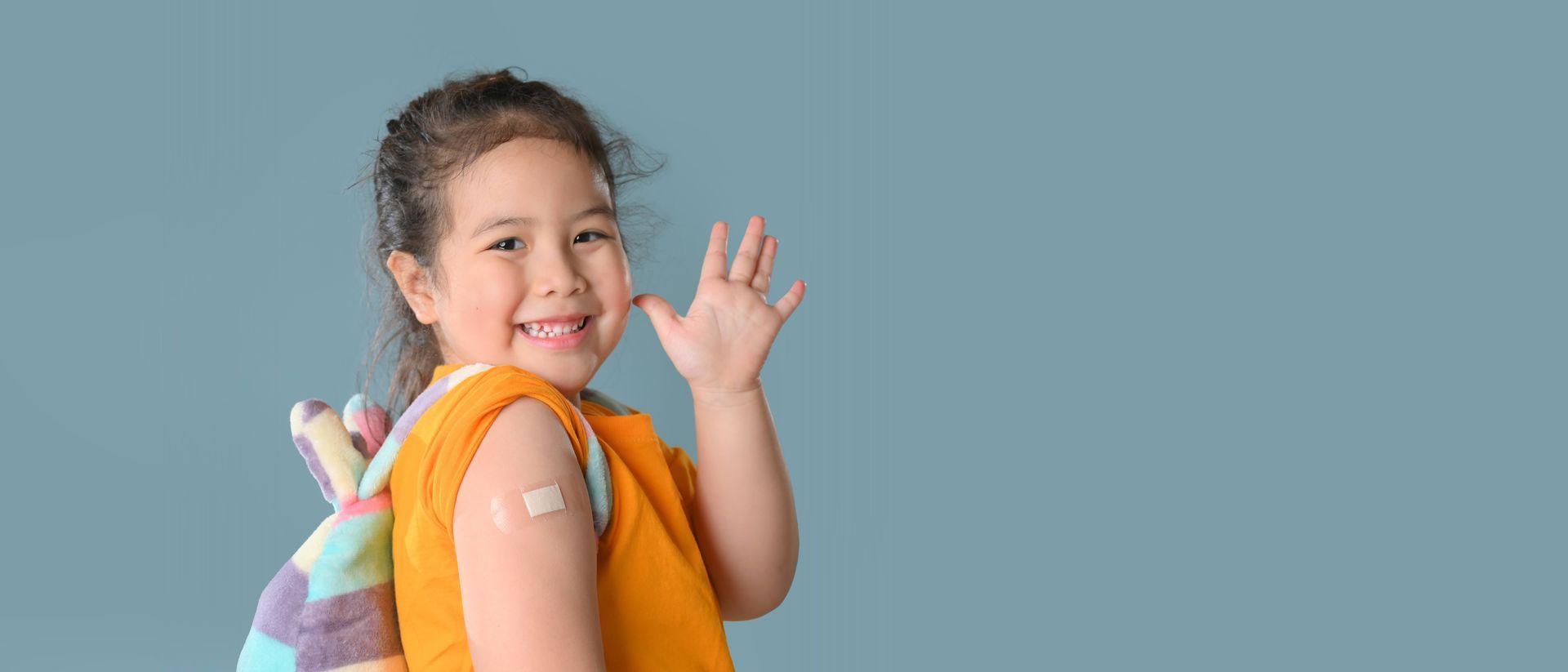Newborn Care 101: A Parent's Guide to Infant Health
The arrival of a newborn baby is a moment of pure wonder. This tiny, precious being completely transforms your world, filling it with boundless joy and a whole new level of responsibility. Caring for a newborn can be both exhilarating and a little overwhelming, especially for first-time parents. It's a time filled with questions, adjustments, and a powerful desire to give your little one the very best start in life.
Remember, no two babies are exactly alike. As you get to know your newborn, you'll gain confidence and learn to trust your instincts. While the learning curve may feel steep at times, take comfort in knowing there are numerous resources for support, including your pediatrician, family, friends, and reliable online sources. Embrace this extraordinary journey of parenthood; those tiny toes and sweet coos won't stay little forever!
The Basics of Newborn Care
The transition from pregnancy to parenthood is a whirlwind of emotions. Along with the immense joy of welcoming your new baby comes a sense of responsibility and, perhaps, a touch of uncertainty when it comes to caring for this tiny, dependent being. At the heart of newborn care lie three pillars: feeding, diapering, and sleep. Understanding the fundamentals of newborn care can ease this transition, equipping you with the knowledge and skills to provide your little one with the best possible start.
Feeding
Newborns have small stomachs and need frequent feedings, whether breastfed or formula-fed. Look out for cues like fussiness, rooting (turning their head towards your breast or a bottle), or sucking on their hands. Breastfeeding offers the perfect balance of nutrients and antibodies, while formula provides a nutritionally complete alternative. Whichever method you choose, patience and responsiveness to your baby's hunger signals are key.
Diapering
Diapering is another essential task that will quickly become second nature. Prepare for frequent changes to keep your baby clean, dry, and prevent diaper rash. Always practice good hand hygiene to minimize the spread of germs and be vigilant about wiping carefully to avoid irritation.
Sleeping
Alongside feeding and diapering comes sleep—a lot of it! Newborns need 16-18 hours of sleep a day, but they sleep in short bursts rather than long stretches. Placing your baby on their back for every sleep is crucial to reduce the risk of SIDS (Sudden Infant Death Syndrome). Ensure a safe sleep environment with a firm mattress, fitted sheet, and no loose blankets, pillows, or toys. While those first weeks may feel like a blur of sleep deprivation, remember that your newborn's sleep patterns will gradually evolve.
Other Newborn Care Elements
Beyond these core needs, newborn care encompasses a range of other elements, including:
- Bonding and Attachment:
Skin-to-skin contact, soothing sounds, eye contact, and loving touch are vital for nurturing your baby's emotional development and sense of security. Respond to their cues with gentleness and affection, fostering a deep and lasting bond.
- Hygiene and Cleanliness: Newborns are susceptible to illness, making proper hygiene crucial. Wash your hands thoroughly before handling your baby, especially after diaper changes or before feeding. Be mindful of visitors and limit contact if someone is feeling unwell.
- Umbilical Cord Care: Keep your baby's umbilical cord stump clean and dry to prevent infection. It will fall off naturally within a few weeks. Consult your pediatrician if you notice any redness, discharge, or foul odor.
- Bathing: Sponge baths are sufficient for the first few weeks until the umbilical cord stump falls off. Once healed, gentle baths a few times a week help keep your baby clean and comfortable.
- Addressing Common Concerns: From colic and cradle cap to spit-up and diaper rash, newborn ailments can be unsettling. Learn about common issues and simple remedies, and don't hesitate to consult your pediatrician with any concerns.
Parenthood is an ongoing learning experience. While the basics of feeding, diapering, and sleep provide a foundation, every baby is unique. Embrace the process, trust your instincts, and don't be afraid to ask for help when you need it. Your pediatrician, along with supportive family and friends, are valuable resources as you navigate this extraordinary journey.

Why Is Newborn Care Essential?
One of the most fundamental reasons why newborn care is essential lies in the vulnerability of infants. Born with underdeveloped immune systems, newborns are highly susceptible to infections and illnesses that can have severe consequences if not addressed promptly. Proper hygiene practices like handwashing, careful cleaning of bottles and feeding equipment, and limiting exposure to sick individuals are vital for protecting babies from preventable diseases. Early detection and appropriate treatment of medical issues can make a world of difference in safeguarding the health of a fragile newborn.
Beyond physical health, the quality of newborn care directly impacts a baby's emotional and cognitive development. Nurturing touch, responsive interaction, and a loving, secure environment foster the formation of essential neural connections in their rapidly developing brains. This early foundation has far-reaching implications for a child's future learning potential, emotional regulation, and social skills. Studies have shown that babies who receive attentive caregiving and abundant sensory stimulation exhibit enhanced cognitive performance and healthier social-emotional adjustment later in life.
Newborn care is also critical in promoting optimal physical growth and development. Regular health checkups with a pediatrician ensure that a baby is meeting developmental milestones, receiving necessary vaccinations, and thriving in terms of weight gain and overall health. Early identification and intervention for potential issues, such as delayed motor development or hearing impairments, can prevent or minimize long-term consequences. Additionally, proper nutrition—whether through breastfeeding or formula—delivers the vital nutrients a baby's rapidly growing body needs.
The benefits of proper newborn care extend beyond the individual child. In many parts of the world, reducing neonatal mortality rates is a major public health priority. Proven interventions like immediate thermal care, clean cord care, and support for breastfeeding have a profound impact on saving newborn lives, particularly in resource-limited settings. When societies invest in newborn care, they not only improve overall health outcomes but also contribute to stronger, more resilient communities.
Perhaps more subjectively, but no less important, proper newborn care facilitates a smoother transition into parenthood. Educating parents on the basics of infant care, such as feeding, diapering, sleep routines, and recognizing signs of illness, reduces uncertainty and builds their confidence. Feeling prepared and equipped with the skills to provide for their newborn's needs reduces parental anxiety and facilitates a positive start to their parenting journey.
Newborn Care 101: Checklist for Parents
Navigating the world of newborn care can feel a bit overwhelming at first, especially for new parents. That's why having a comprehensive checklist is so valuable. It helps ensure you have all the essentials on hand to care for your precious bundle with confidence.
This checklist will provide you with a thorough guide to all the necessities, from the must-haves for feeding and diapering to creating a safe and comfortable sleep environment. Remember, every baby is unique, so personalize this list to fit your little one's needs and your parenting style. Embrace this incredible journey—the snuggles and milestones are worth every ounce of effort!
Breastfeeding Supplies (if breastfeeding)
- Nursing bras and pads
- Breast pump (manual or electric)
- Milk storage bottles/bags
- Nipple cream
- Lactation consultant contact information (if needed)
Formula Feeding Supplies (if formula feeding)
- Infant formula (as recommended by your pediatrician)
- Sterilized bottles and nipples
- Bottle brush for cleaning
- Bottle warmer (optional)
Other Feeding Essentials
- Burp cloths
- Bibs
Diapering
- Diapers: Choose disposable or cloth; have an ample supply.
- Wipes: Fragrance-free, sensitive wipes are best.
- Diaper rash cream - to prevent and treat irritation.
- Changing supplies
- Changing pad or designated changing area
- Diaper pail or designated disposal area
Safe Sleep
- Firm, flat crib mattress
- Fitted crib sheets
- Wearable sleep sacks (avoid loose blankets or pillows)
Comfort
- Swaddles
- Pacifiers (if desired)
- White noise machine or soft music
Bathing & Hygiene
- Baby bathtub: Infant tub or sink insert.
- Baby wash and shampoo: Mild, tear-free options.
- Soft washcloths and towels
- Nail clippers or a baby file
- Baby lotion (optional)
- Diaper rash cream
- Cotton balls and saline solution (for eye or cord cleaning as needed)
Health and Well-Being
- Pediatrician: Schedule your baby's first checkup.
- First aid kit: Include infant thermometer, bulb syringe, and infant pain reliever (consult your pediatrician)
- Baby carrier or sling: Promotes bonding and eases fussiness.
- Infant car seat: Correct installation is crucial for safety.
Clothing
- Onesie: Stock up on both short- and long-sleeved options.
- Sleepers: Footed pajamas for cozy warmth.
- Socks and booties: Keep those tiny toes warm.
- Hats: For warmth indoors and outdoors.
- Mittens: Prevent accidental scratches.
- Soft, breathable fabrics
- Laundry detergent formulated for babies
Additional Items (as needed)
- Baby monitor
- Baby swing or bouncer
- Stroller
- Play mat or activity gym
- Soft toys and books
Important Reminders
- Always place your baby on their back to sleep.
- Wash your hands frequently, especially before handling your baby.
- Stock up on supplies to minimize errands in those first weeks.
- Don't be afraid to ask for help from family, friends, or professionals.
- It's okay if things don't go according to plan; babies are unpredictable!
- Trust your instincts. You know your baby best!
Key Takeaways
Newborn care is essential in a multitude of ways. It plays a crucial role in safeguarding a baby's physical health, promoting healthy brain development, ensuring optimal growth, and ultimately influencing their long-term well-being. By investing in quality care for newborns, we not only nurture individual lives but also contribute to healthier families and stronger societies. The impact of those tender first moments after birth reverberates throughout a child's entire life—and into the future generations, they may one day raise themselves.
Your Family’s Health Is Our Priority
Your wellness matters to us. Take the next step in your care today.
1020 4th Ave
Lake Odessa, MI 48849
oFFICE HOURS
- Mon - Tue
- -
- Wed - Thu
- -
- Fri - Sun
- Closed
AFTER HOURS EMERGENCY CONTACT
1020 4th Ave
Lake Odessa, MI 48849
oFFICE HOURS
- Mon - Tue
- -
- Wed - Thu
- -
- Fri - Sun
- Closed
AFTER HOURS EMERGENCY CONTACT
All Rights Reserved
FAMILY MEDICAL CENTER
website designed by SPECK DESIGNS
All Rights Reserved | FAMILY MEDICAL CENTER
website designed by SPECK DESIGNS





